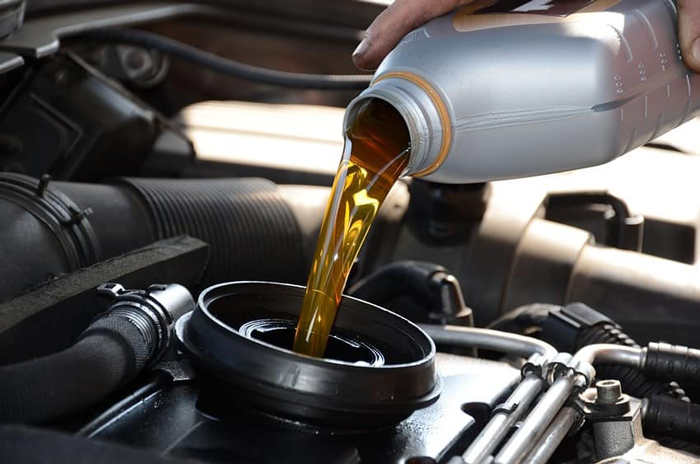So, picture this: you’re due for an oil change, and you decide to go with the good ol’ regular oil instead of splurging on the fancy synthetic stuff. Well, buckle up, because your car might just throw a little tantrum! I know, I know, who knew oil could be so high-maintenance, right?
I’m not saying your car will turn into a pumpkin at midnight, but using regular oil instead of synthetic could lead to some interesting surprises under the hood. From decreased engine performance to potential build-up that even a power wash couldn’t handle, your ride might not be too thrilled with your cost-cutting measures. But hey, at least your wallet’s happy, right?
Effects of Using Regular Oil Instead of Synthetic
When you decide to go with regular oil over the slick synthetic option for your oil change, the consequences can be quite interesting. Let me walk you through what you might encounter:

Engine Cleanliness and Performance
I’ve got to admit, your engine may not be too pleased with your choice of regular oil. Unlike synthetic oil that keeps things clean and flowing smoothly, regular oil might leave behind deposits and gunk that can hamper your engine’s performance. So, get ready for a less-than-thrilled engine rumble next time you hit the road.
Impact on Oil Longevity and Change Intervals
Ah, the sweet sound of regular oil leading to more frequent oil changes. While synthetic oil can go the distance, regular oil might have your car thirstier for fresh oil sooner than you’d like. Be prepared to schedule those oil changes more often than you’d expect. Your wallet might feel a bit lighter too!
Suitability for Extreme Temperatures
Regular oil might not be your ride-or-die companion in extreme temperature conditions. When the heat is on or the cold is biting, synthetic oil tends to keep its cool and flow smoothly, ensuring your engine stays happy. Regular oil, on the other hand, might struggle to perform at its best, leaving you in a sticky (or sludgy) situation.
So, there you have it, the quirky outcomes of choosing regular oil over synthetic for your car. Just remember, sometimes it’s worth splurging a bit to keep your engine purring like a contented kitten.
Cost Implications of Choosing Regular Oil
When it comes to the cost implications of using regular oil instead of synthetic, it’s essential to consider both short-term and long-term expenses. Let’s jump into the details:
Short-Term vs. Long-Term Costs
In the short term, opting for regular oil may seem like a money-saving hack, but it could end up costing you more in the long run. Here’s a breakdown to help you understand the financial impact:
- Short-Term Costs:
- Initial Cost: Regular oil typically has a lower price tag than synthetic oil, making it a tempting choice for those on a budget.
- More Frequent Changes: Since regular oil breaks down faster than synthetic oil, you may find yourself scheduling oil changes more frequently to maintain engine health.
- Long-Term Costs:
- Engine Health Maintenance: Regular oil may lead to deposits and gunk buildup in the engine over time, affecting its performance and longevity.
- Repair Expenses: Increased wear and tear caused by regular oil could result in higher repair costs down the road.
In the battle of regular oil versus synthetic oil, the upfront savings of regular oil might pale in comparison to the potential long-term expenses. It’s like trying to save money by using a paper umbrella in a storm—it might work for a while, but eventually, you’ll get soaked! So, weighing the cost implications carefully can help you make a more well-informed choice for your car’s well-being.
Recommendations for Oil Use in Different Vehicles
So, you’re wondering about the best oil options for your precious ride? Well, let me dish out some advice on what you should be pouring into your vehicle depending on whether it’s a seasoned legend or a shiny new gem.
Older vs. Newer Models
When it comes to choosing the right oil for older vs. newer vehicles, it’s like picking out the perfect outfit for different eras. Here’s the lowdown:
Older Models:
- These classics might appreciate a bit of extra care, so synthetic oil could be like a spa day for their engines.
- Opting for synthetic oil can help reduce wear and tear, keeping those vintage wheels spinning smoothly.
- Plus, synthetic oil tends to handle temperature extremes better, which can be a lifesaver for those hot rods or cool cruisers.
Newer Models:
- Modern vehicles are like the tech-savvy whiz-kids of the automotive world.
- They’re often designed to work optimally with synthetic oil, offering improved performance and efficiency.
- Synthetic oil’s advanced formula matches the needs of these cutting-edge machines, providing superior lubrication and protection.
Conclusion
Well, folks, there you have it! Using regular oil instead of synthetic in your car is like trying to make a gourmet meal with dollar store ingredients – it might work in a pinch, but you’ll definitely taste the difference. From decreased engine performance to more frequent oil changes, regular oil just can’t keep up. And let’s not forget about those engine deposits and potential repair costs – yikes! So, do yourself a favor and give your car the VIP treatment it deserves with some top-notch synthetic oil. Your engine will thank you, your wallet will thank you, and you’ll be cruising smoothly down the road without a care in the world. Cheers to happy engines and stress-free rides!
Frequently Asked Questions
Is regular oil bad for my car’s engine performance?
Yes, using regular oil can lead to decreased engine performance due to lower viscosity and reduced protection against wear, especially in extreme temperatures. It may require more frequent oil changes to maintain optimal performance.
Are there cost implications of using regular oil?
While regular oil may seem cost-effective initially, it can result in higher long-term expenses. Factors like more frequent oil changes, engine deposits, and potential repair costs could outweigh the initial savings.
How can I choose the right oil for my vehicle?
For older models, synthetic oil is recommended to reduce wear and tear and ensure better performance in extreme temperatures. Newer models are designed to work best with synthetic oil, providing improved efficiency and protection.
Why should I invest in synthetic oil for my car?
Synthetic oil is advised for maintaining optimal engine performance and longevity. It offers tailored benefits for different vehicles based on age, providing enhanced efficiency, protection, and performance.

